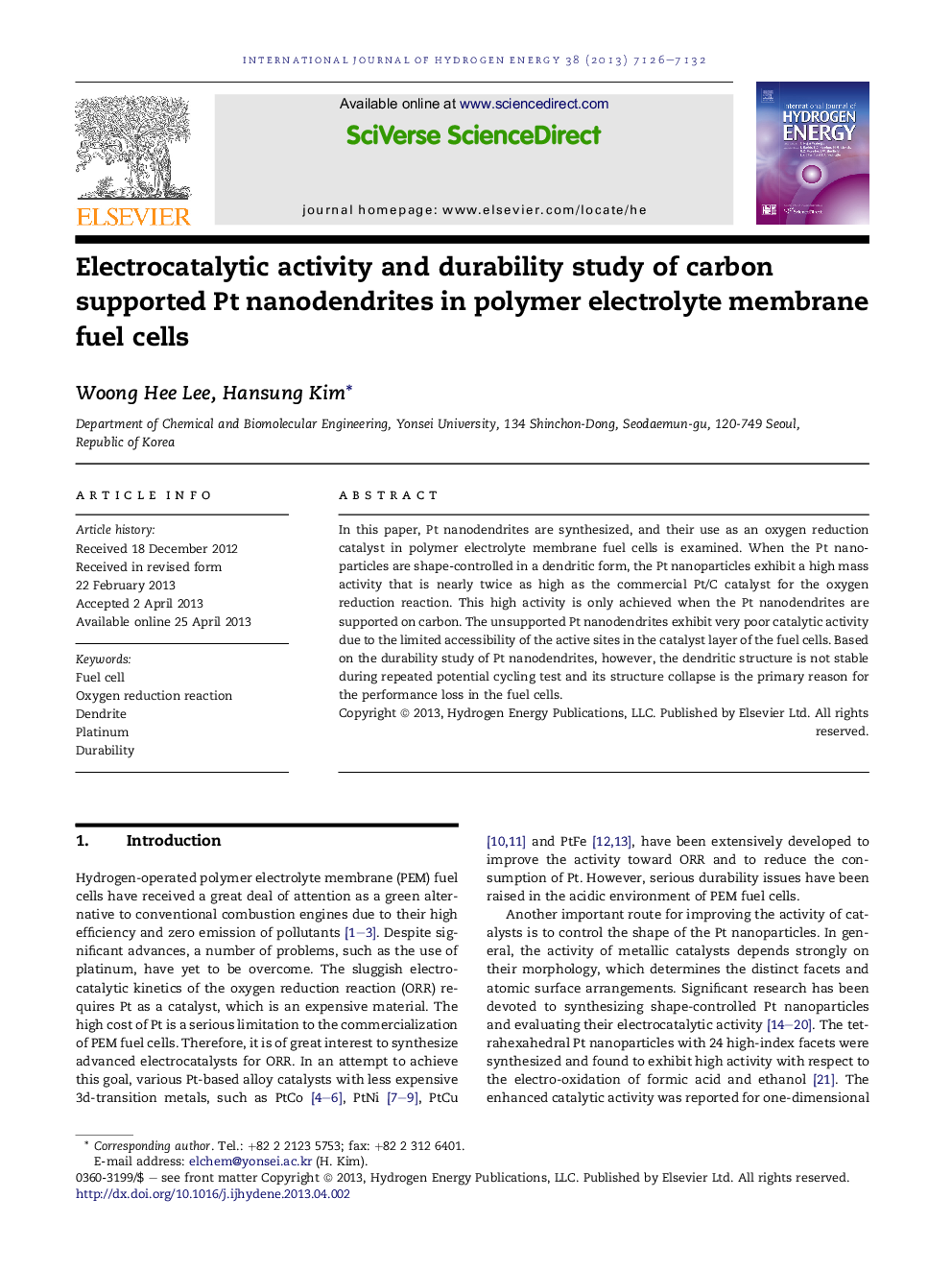| Article ID | Journal | Published Year | Pages | File Type |
|---|---|---|---|---|
| 1277496 | International Journal of Hydrogen Energy | 2013 | 7 Pages |
•Unsupported Pt nanodendrites show very poor performance in fuel cells.•The carbon supported Pt nanodendrites show significantly high mass activity.•Pt nanodendrites show the poor durability from the ADT up to 20,000 cycles.•The dendritic structure collapse is the primary reason for the poor durability.
In this paper, Pt nanodendrites are synthesized, and their use as an oxygen reduction catalyst in polymer electrolyte membrane fuel cells is examined. When the Pt nanoparticles are shape-controlled in a dendritic form, the Pt nanoparticles exhibit a high mass activity that is nearly twice as high as the commercial Pt/C catalyst for the oxygen reduction reaction. This high activity is only achieved when the Pt nanodendrites are supported on carbon. The unsupported Pt nanodendrites exhibit very poor catalytic activity due to the limited accessibility of the active sites in the catalyst layer of the fuel cells. Based on the durability study of Pt nanodendrites, however, the dendritic structure is not stable during repeated potential cycling test and its structure collapse is the primary reason for the performance loss in the fuel cells.
Graphical abstractFigure optionsDownload full-size imageDownload as PowerPoint slide
